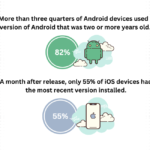The Benefits of Push Notifications in Mobile App Marketing are profound, offering businesses a direct line of communication with their users. In an era where mobile engagement is crucial, push notifications serve as valuable tools for enhancing user experience and retention. They not only keep users informed about updates and promotions but also foster a sense of connection, making users feel valued and engaged with the app.
By leveraging push notifications effectively, marketers can drive user engagement, increase app usage, and ultimately boost conversions. Understanding the dynamics of how these notifications work and the impact they have on user behavior is essential for any successful mobile app marketing strategy.
In today’s fast-paced world, the significance of self-care often gets overshadowed by our busy schedules and responsibilities. It’s easy to forget that taking care of ourselves—both mentally and physically—should be a top priority. Self-care isn’t just a trendy phrase; it’s a vital practice that can enhance our quality of life and overall well-being. In this article, we will explore the multifaceted aspects of self-care, why it matters, and some practical tips to incorporate it into your daily routine.Firstly, let’s clarify what self-care truly means.
At its core, self-care refers to the intentional actions we take to preserve or improve our health. It encompasses a wide array of activities, from physical exercise and healthy eating to mental health practices like meditation and mindfulness. Self-care is not selfish; rather, it is an essential component of maintaining a balanced life. When we prioritize our own needs, we equip ourselves better to support others.One of the most significant benefits of self-care is stress reduction.
In our hectic lives, stress can accumulate to a point where it negatively impacts our physical health, mental well-being, and relationships. By engaging in self-care activities, we can effectively manage and reduce stress levels. For instance, physical activities such as yoga or jogging release endorphins, commonly known as “feel-good” hormones, which can elevate our mood and decrease feelings of anxiety.Additionally, self-care promotes better physical health.
When we engage in regular exercise, consume nutritious foods, and ensure adequate sleep, we create a stronger, healthier body. These habits can lead to long-term health benefits, such as decreased risk of chronic diseases and improved immune function. Prioritizing our physical health through self-care can also enhance our energy levels, making it easier to tackle daily tasks and responsibilities.Mental health is another crucial aspect that self-care addresses.
In a world where mental health issues are becoming increasingly prevalent, taking time for ourselves has never been more important. Activities such as journaling, reading, or practicing mindfulness can significantly improve our mental clarity and emotional stability. Furthermore, talking to a therapist or counselor can provide valuable support and guidance as we navigate through life’s challenges.Self-care also plays a vital role in fostering relationships.
When we are in a better mental and emotional state, we can connect more authentically with others. By taking the time to recharge and focus on ourselves, we can cultivate healthier relationships with family, friends, and colleagues. Engaging in self-care can also serve as a model for those around us, encouraging them to prioritize their own well-being.Now that we understand the importance of self-care, let’s discuss practical ways to incorporate it into our daily lives.
Here are some effective self-care strategies you can adopt:
1. Create a Self-Care Routine Establish a daily or weekly routine that includes dedicated time for self-care activities. This could be as simple as setting aside 30 minutes each day for a relaxing bath, reading a book, or practicing meditation.

2. Stay Active Incorporate physical activity into your schedule. Whether it’s a gym session, a brisk walk, or a dance class, find an activity you enjoy and make it a regular part of your life.
3. Mindfulness and Meditation Practicing mindfulness or meditation can greatly improve your mental health. Start with just a few minutes each day, gradually increasing the time as you become more comfortable with the practice.
4. Healthy Eating Make a conscious effort to nourish your body with healthy foods. Meal prepping can help ensure you have nutritious options readily available, reducing the temptation to opt for unhealthy snacks.
5. Limit Screen Time In our digital age, constant screen exposure can lead to burnout. Set boundaries around your screen time, especially before bed, to promote better sleep and mental clarity.
6. Enjoy Nature Spend time outdoors to rejuvenate your mind and body. Nature walks, hiking, or simply sitting in a park can help you reconnect with yourself and reduce stress.
7. Connect with Others Reach out to friends or family members for social interactions. Building a support network can significantly enhance your emotional well-being.
8. Pursue Hobbies Engage in activities that bring you joy and fulfillment. Whether it’s painting, gardening, or playing an instrument, hobbies can serve as a fantastic stress-reliever.
9. Practice Gratitude Keeping a gratitude journal can shift your focus from what’s lacking in your life to what you appreciate. This simple practice can foster a more positive mindset.1
0. Seek Professional Help If you’re struggling with mental health issues, don’t hesitate to seek support from a qualified professional. Therapy can provide invaluable tools for managing stress and anxiety.In conclusion, self-care is not just an indulgence; it’s a necessary practice for maintaining our physical and mental health. By prioritizing self-care, we empower ourselves to face life’s challenges with resilience and strength. It’s about finding balance, making time for ourselves, and recognizing that our well-being is crucial not only for us but also for those around us.
So, take a moment today to reflect on your self-care routine and identify areas for improvement. Remember, you deserve to care for yourself just as much as you care for others.



